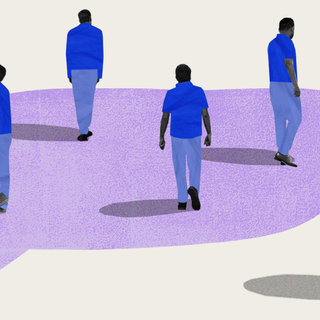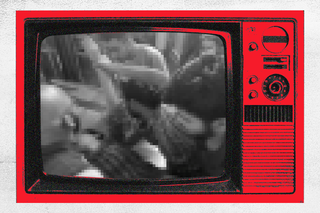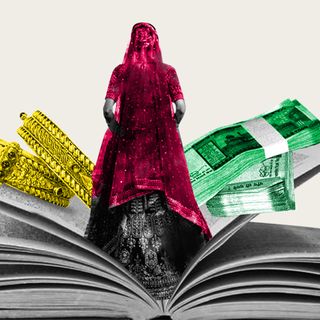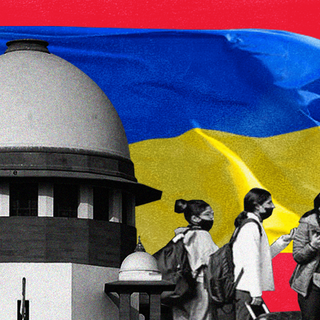
Media Framing the JNU Violence Over Non‑Veg Food as a ‘Clash’ Condones the Assault
News reports misrepresenting the deliberate assault of students not only normalizes violence, but also cements a false memory of events.

It’s April 2022, and a dangerous pattern of distortions is playing out yet again. On Sunday, students of the Akhil Bharatiya Vidyarthi Parishad (ABVP) forcibly stopped non-vegetarian food from being cooked in Jawaharlal Nehru University’s Kaveri Hostel. Several students were injured and beaten up; the violence was then reported as “clashes” between two student groups. A similar narrative of the “JNU clash” was dutifully pieced together in January 2020, when a group of ABVP students barged into the JNU campus with stones and sticks.
Even then, the media shied away from calling it an “attack” or an “assault” on JNU students; tepidly headlining the front pages, speaking of a clash — a conflict between two groups with opposing political ideologies. This ecosystem of falsehoods is slowly manufacturing a pattern where we keep calling deliberate assaults “clashes,” effectively condoning violence and bigotry.
Language is powerful. So much could be said — and has been said — about how the choice of words in these instances shapes much of what we understand about our very reality. In this case, deliberately shrouding the truth under the garb of “chaos” and “balance” misrepresents the narrative of student activism in India. Moreover, it deepens the fractures that meat bans during the Hindu festival of Ram Navmi are perniciously creating in the country.
Notably, the media willfully participates in the agenda-setting that happens at a dynamic, daily pace in this country. One would argue that this exercise is carried out in public interest — whatever stories we choose, and the way we frame them — benefit a citizen. When the one story playing on prime time news or headlining articles is of a “clash,” the agenda is set to the channel of a particular ideology and party — hurting the public interest.
A tangential effect of this “left vs right” narrative — a mutation of the “they said-they said” argument — is that it garbles the student activism and respected movements. This saga has played out before. JNU is already alluded to as a place of dissent — a breeding ground for rebels — depending on one’s allegiance. The left vs right tussle does exactly what it intends to — frames it as two equally powerful people fighting. As signals from the campus became increasingly muffled (with ABVP denying the attacks and saying it was the “Leftists” who obstructed a puja on campus), this particular brand of reporting then works to polarize the narrative to a dangerous degree.
Related on The Swaddle:
Any authentic and credible reportage at the end of the day must focus on the broader context at play instead of blindly striving for some misplaced sense of “balance.” The truth is that at this point in the time, the background to this intolerance lies in growing cultural anxieties around food. Some right-wing politicians in the last few days banned the sale of meat during the Hindu festival of Navratri. This is also the time of Ramadan, when meat is the central dish for Muslims who break their fast in the evening. Since most meat shops are owned and respond to the needs of Muslims during this time, any bans directly exclude and suppress the community.
The paradox is apparent — the binary between “meat-eating” and “deep vegetarian” traditions are falsely being touted as those belonging to Muslims and Hindus; both have co-existed and defined India for decades now. But the right-wing thrives by equating vegetarianism with Hindus, and them with purity, feeding into a cultural hostility and marginalization of Muslims in the country. “In India, vegetarianism is being weaponized by the right,” Vikram Doctor told BBC. Without this context, the current events unfolding at JNU are much more than a “clash.” The heavily political context is lost in claims of “liberals marring this country’s integrity” or “politically-motivated students fighting among themselves.”
A media reporting that ignores the context invariably normalizes violence and lowers the standards of extreme retaliation. The ground is still hot on the heels of some extreme Hindutva activists — in parts of Karnataka, Madhya Pradesh, Gujarat, among other states — abusing and terrorizing Muslims under the garb of celebrating Ram Navmi.
“It is a constitutional right of every citizen to eat the food of their choice,” the All India Students’ Association (AISA) said in a press release. “It is a part of the definition of India where everyone has a right to food of their choice. Do few goons of ABVP have the right to disrupt the constitutional rights of citizens?”
It’s hard to separate any discussion of media coverage in India from the country’s hyperpartisan and hyperpolarized political environment. No matter who pelts the stones, takes up the stick, charges at others in the shadow of the night. It will always be a clash — with the truth.
Saumya Kalia is an Associate Editor at The Swaddle. Her journalism and writing explore issues of social justice, digital sub-cultures, media ecosystem, literature, and memory as they cut across socio-cultural periods. You can reach her at @Saumya_Kalia.
Related


Dowry Helps in Marrying ‘Ugly’ Girls Off, Says Nursing Textbook
